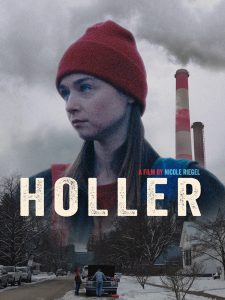Movie directed by LOIRA LIMBAL
Review by HANNAH GERSEN

I didn’t have much awareness of overnight childcare centers until I watched Through the Night, a documentary about a married couple, Deloris and Patrick Hogan, who run Dee’s Tots, a 24-hour daycare in New Rochelle, New York. Sadly, I don’t think my ignorance is unusual, and is likely shared by the many members of Congress who have consistently declined to fund public childcare, even after the pandemic revealed how necessary it is to working parents. Although not overtly political, Through the Night is quietly radical as it shines a light on the work of caregiving. It’s highly skilled labor that is essential to the health of children and families, yet childcare workers are often overworked and underpaid. To the extent that the government has childcare policies, they are designed to fit a model of a nuclear family with one stay-at-home parent. Director Loira Limbal shows the reality: many parents (usually mothers) are raising children on their own, and their jobs do not offer the pay, benefits, or flexibility to accommodate child-rearing.















